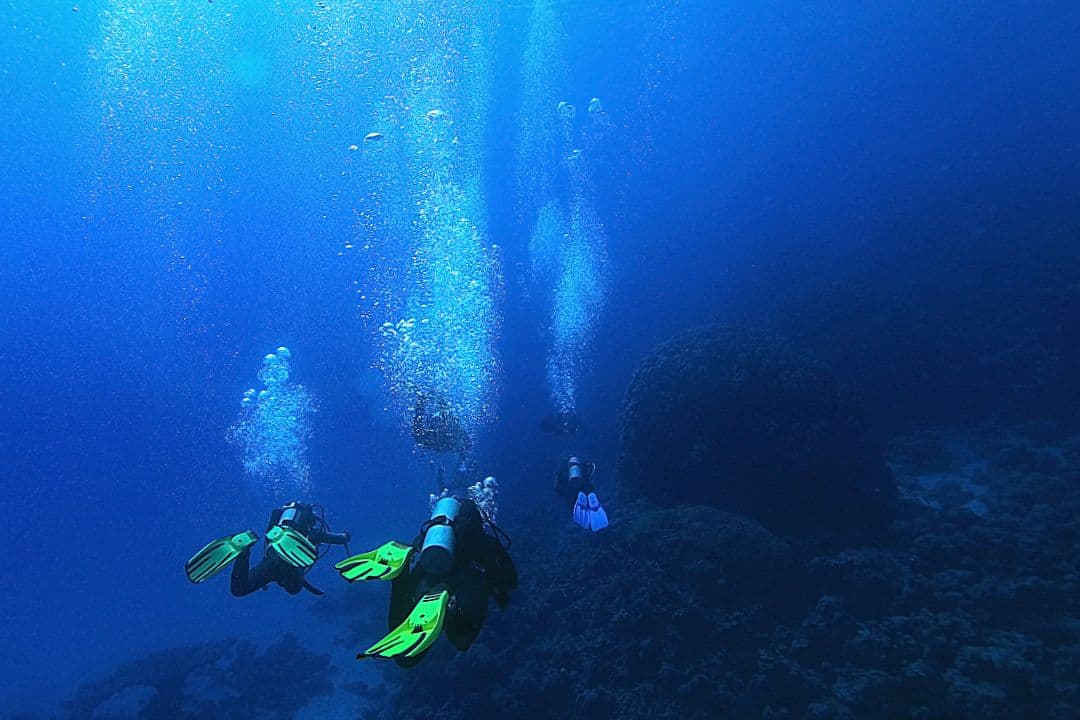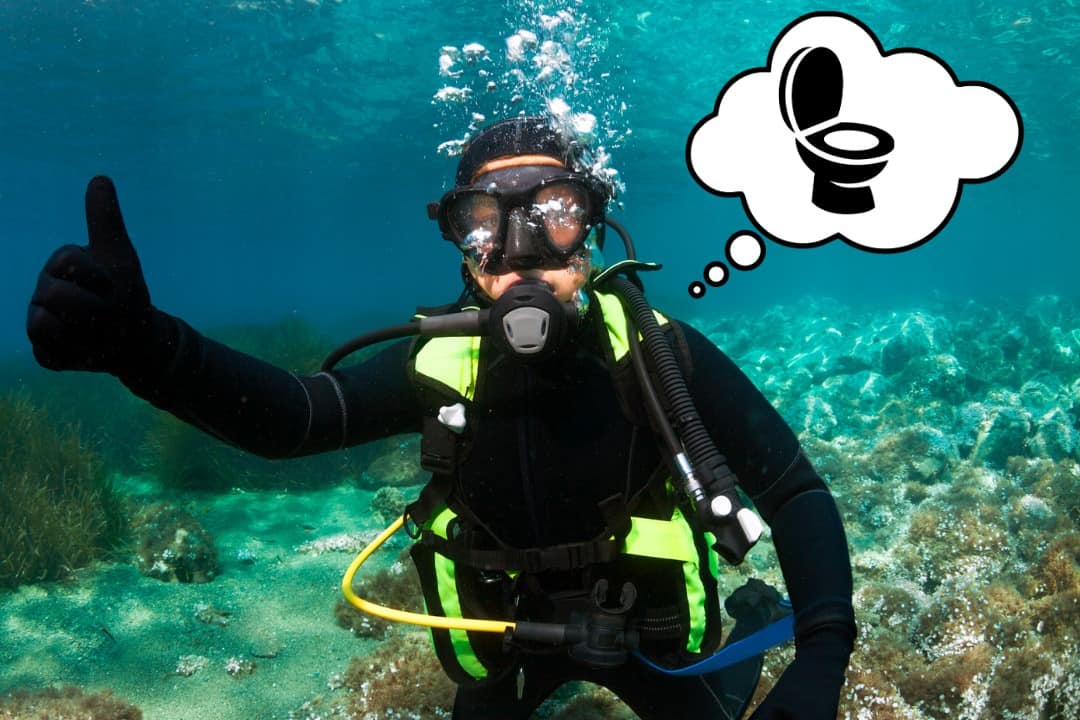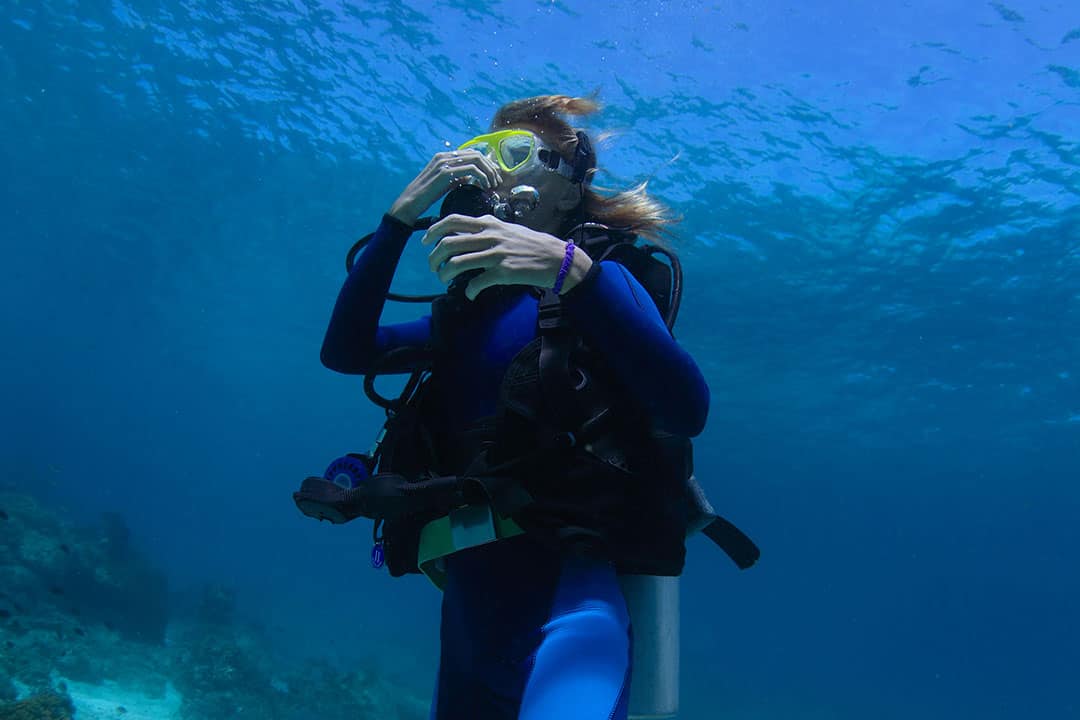Many people dream about exploring the underwater world, but they’re not sure if it’s safe to scuba dive. In this article, I’ll explain whether scuba diving is dangerous.
Is it dangerous to scuba dive?
Overall, it’s not dangerous to scuba dive with the proper training and safety steps. Scuba diving is a sporting activity with risks that you can manage.
Will I get the bends?
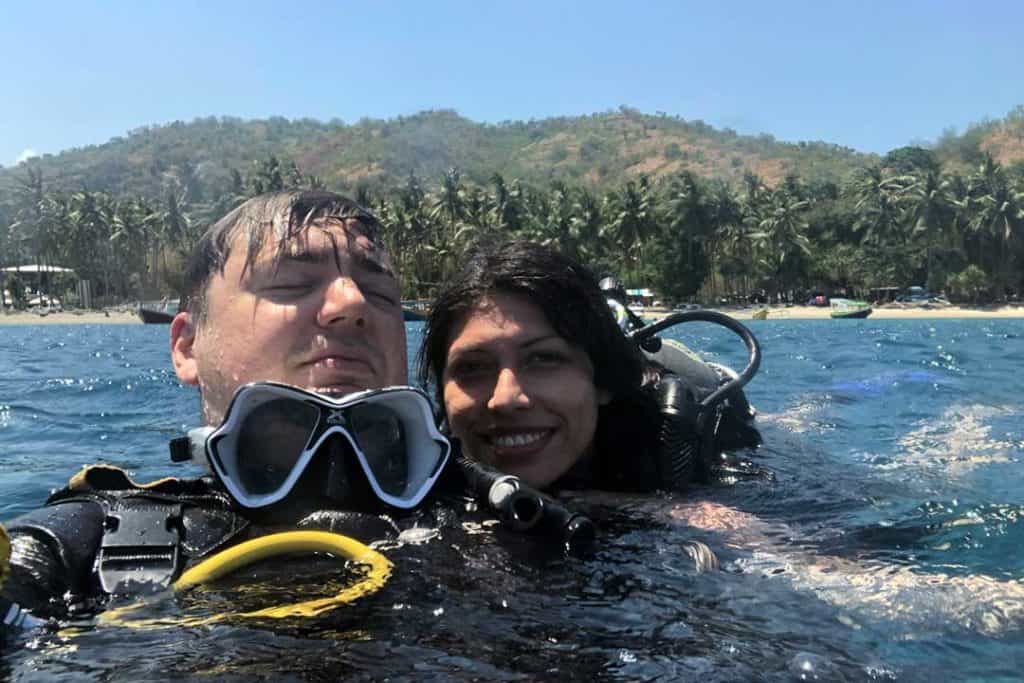
Any reputable dive shop takes diver safety very seriously and follows international standards set by dive organizations like PADI.
However, you still might have heard of divers getting “bent.”
“The bends” is a term for decompression sickness, which can happen if you ascend too quickly.
It can cause mild or serious injury, but cases of decompression sickness are rare among the millions of people who dive every year.
Actually, fewer divers visit the emergency room than snowboarders or even bowlers!
If you’re a beginner diver, your instructor will train you how to descend and ascend safely to minimize the risk of decompression.
They’ll stay with you and monitor your depth to keep you safe.
If you’re a certified diver, your divemaster will remind you of the best practices you learned in your training before your dive.
Dive computers that track your depth and ascent rates will also alert you automatically if you’re ascending too quickly. With dive professionals, training, and technology, it’s easy to stay safe underwater.
Will a shark attack me?
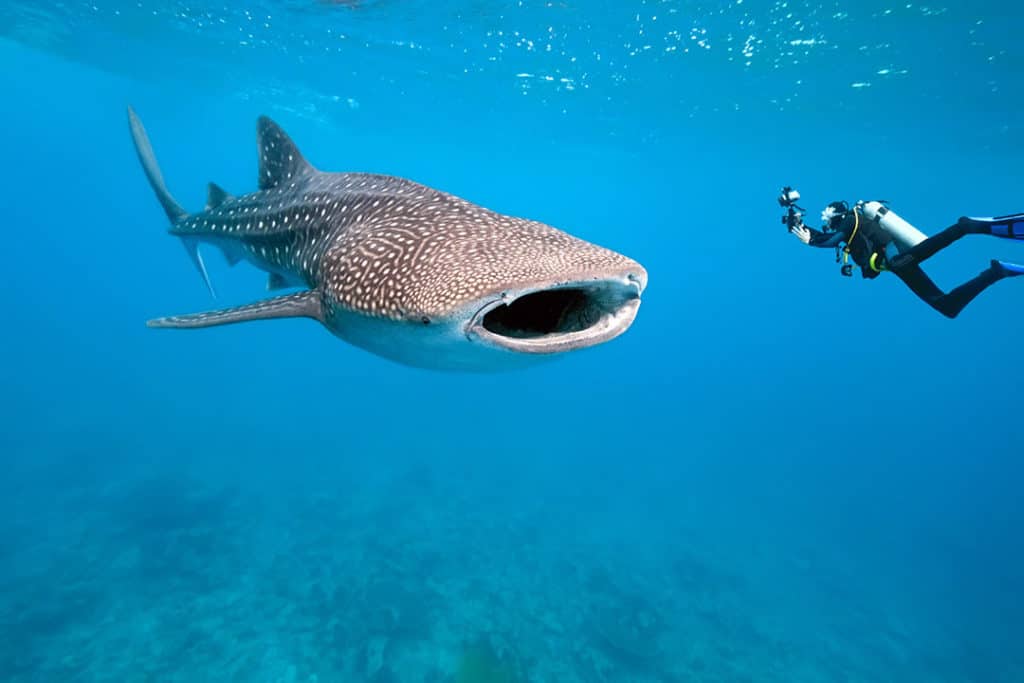
One of the most common questions divers get is: “Aren’t you afraid of sharks?” The truth is that sharks have been portrayed completely wrong in movies and news reports.
Sharks are important parts of any ecosystem; they help keep fish populations fit and are a sign of a healthy reef.
They have a specific diet of fish and small sea creatures – and humans aren’t on the menu. Horses, dogs, and cows attack more people every year than sharks! (3)
Most divers will tell you stories of peaceful sharks cruising the reefs during a dive, or even that sharks are hard to see because they’re afraid of divers.
Most sharks that you would see on a coastal dive, like reef and nurse sharks, aren’t aggressive at all.
Even the more aggressive species, like great white sharks, aren’t going to show up in the middle of your dive.
You usually need to go cage diving in a more remote site, like off the coast of Mexico or South Africa, to see them.
As long as you follow your training and don’t touch, harass, or chase any sea creatures, your risk of having a bad encounter will practically disappear.
Will I run out of air?
Diving equipment and technology have improved drastically since Jacques Cousteau first started experimenting with breathing compressed air in the 1940s.
Today, divers have modern, reliable, and highly tested breathing equipment.
Regulator hoses deliver air from the tank to a diver’s lungs at just the right pressure for the diver’s depth.
Regulators are equipped with various fail-safes that continue the flow of air to the diver even if the regulator has a mechanical issue during the dive.
Divers also have an air gauge that constantly displays how much air is in the tank.
On the dive, you and your divemaster will both be checking your air, and you’ll come back up to the surface well before your tank nears empty.
As part of the pre-dive safety check, divemasters and dive buddies should always check that the tank is full and the regulator and air gauge are working well.
If you, your divemaster, and your dive buddy all fail to notice that your tank is suddenly empty, every diver has a spare breathing hose you can hop on to.
That’s why training before a dive includes how to share air, and why dive standards are adamant that you always have a buddy within a few meters.
Almost all problems with air can be avoided by following standards and training.
Will I get lost underwater?
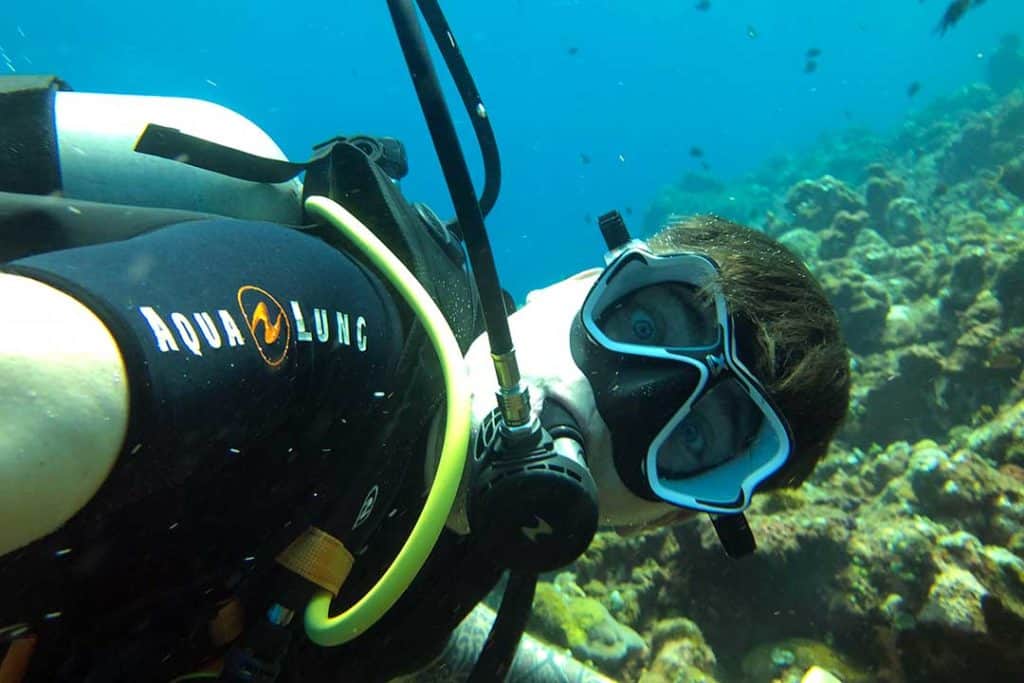
Some people worry that they’ll lose sight of the group or get swept away by a current. There are many safety checks in place to make sure that water conditions are safe and that the group stays together.
Before a dive, the captain and divemasters evaluate the water conditions to make sure it’s safe to dive.
Divemasters give you a briefing about the conditions and which direction to follow. You can ask to consult maps and diagrams of the area so you know what to expect underwater.
Some dive shops will even provide you with an underwater compass on request so that you can navigate back to the boat.
If you’re diving with only a certified buddy, staying within a few meters of them at all times will mean you’re never on your own.
If you’re following a guide, keeping them in sight is the best plan – after all, they know the area best.
Divers often get distracted by chasing fish or taking pictures and can lose sight of the groups, so stay aware of where you’re going.
If you do get lost and the procedures from training don’t reunite you with the group, it’s always a possibility to ascend – very slowly – and reunite on the surface or head back to the boat.
Will my ears get injured?
An ear injury, or barotrauma, is the most common scuba injury.
One of the first tricks you learn before going underwater is how to “equalize” the pressure of the water on your ears as you descend. Most divers can find a method that works for them, even if they struggle to equalize their ears at first.
If you don’t equalize correctly, or try to force it when it’s not working, you can inflame or seriously damage your sinuses and inner ears. The key is to be patient and descend slowly, and only when you’re sure your ears feel fine.
It’s possible to have trouble equalizing on the way back up if your ears or sinuses get congested underwater, like when you have a cold. Unfortunately, it’s best not to dive when you’re congested. Even decongestant medicines can wear off while you’re on the dive and cause problems with your ascent.
Just like most scuba issues, ear problems can be prevented or resolved with good training and precautions.
Conclusion
Scuba diving is a fun and immersive experience enjoyed by millions of people around the world, but it’s still an extreme sport.
If you follow the accepted safety standards and training, it’s unlikely that you’ll get anything more than a sunburn.
Do you think scuba diving is safe? If you have a question or something you would add, leave a comment below!
